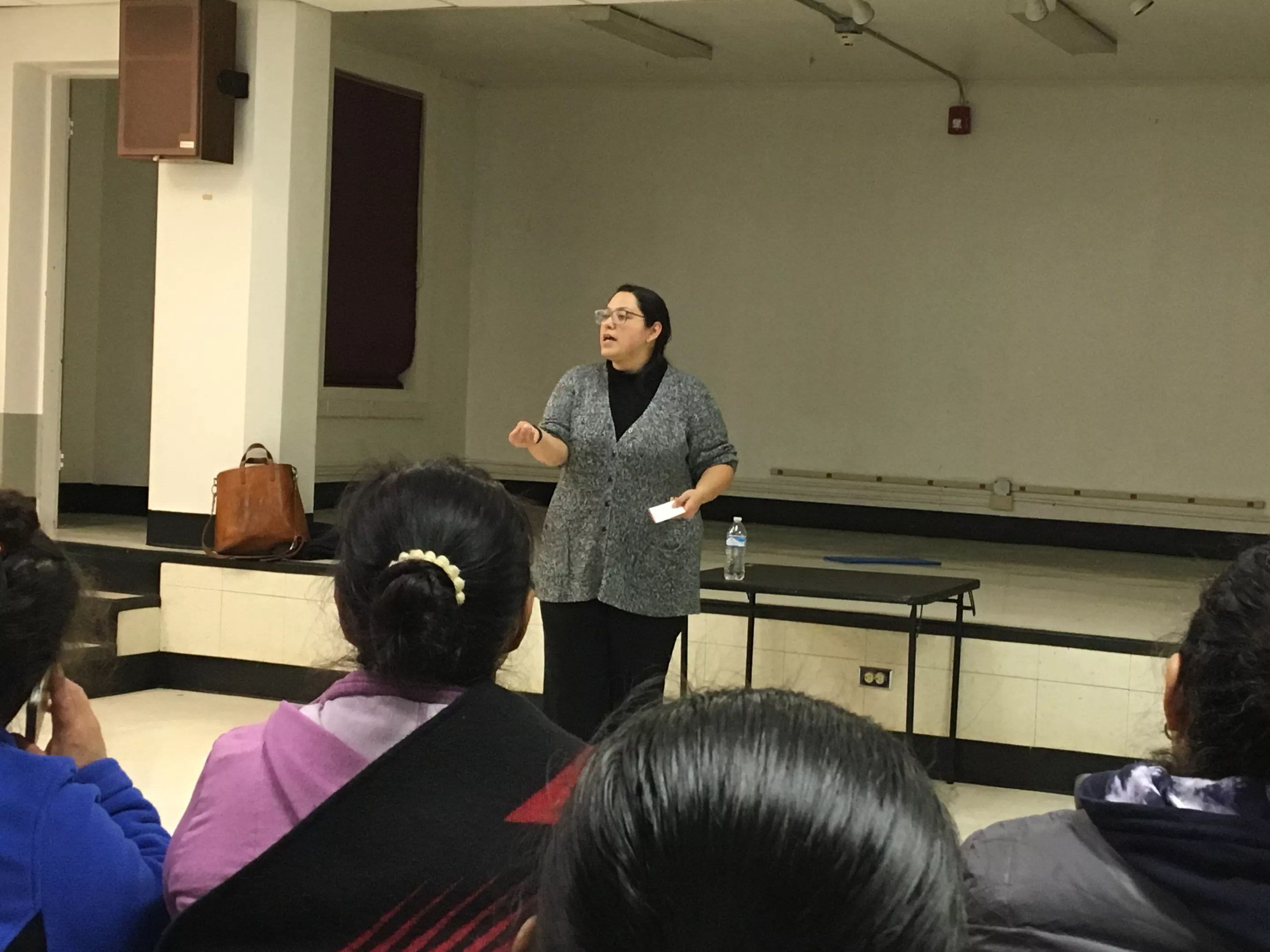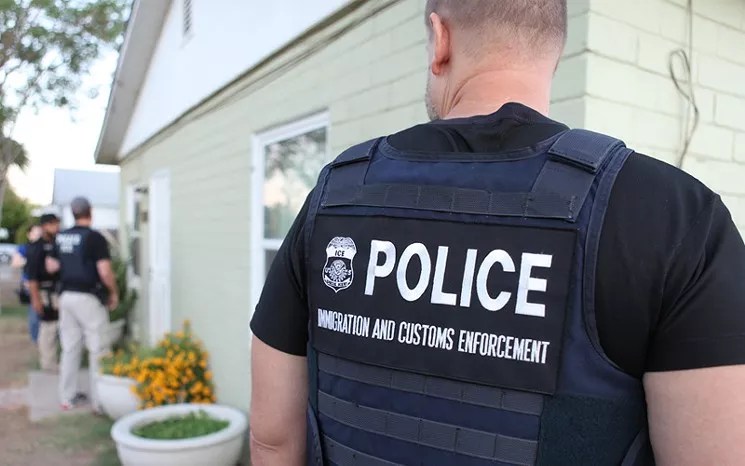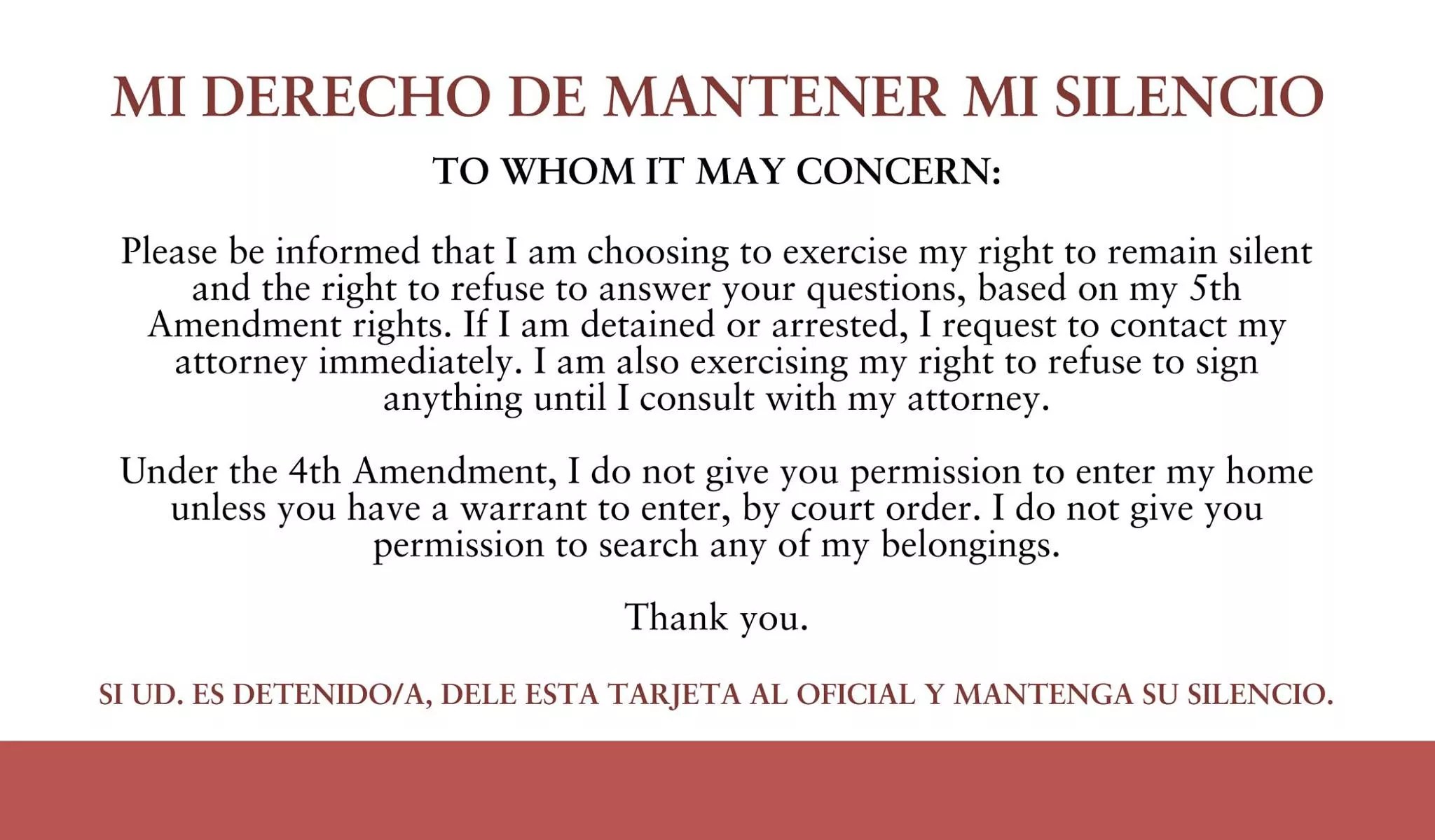
Chris Walker

Audio By Carbonatix
“How many of you have heard rumors or have fears about immigration enforcement?” asks Julie Gonzales in Spanish before a packed room.
Multiple hands shoot up into the air.
“I’m concerned that immigration will come to my house and knock on the door,” one man says.
“There are rumors about ICE checkpoints,” says another women. “People were saying Peoria and Colfax.”
“And on Federal [Boulevard]!” someone else exclaims.
“And in Montbello!”
Gonzales, who is the policy director at the Meyer Law Office, which specializes in immigration and criminal law, nods in acknowledgement. She’s heard these answers before, at her previous “Know Your Rights” presentations.
In this instance, on Wednesday, March 1, Gonzales is before a mostly Latino audience in the Globeville neighborhood at an annex building run by the Holy Rosary Catholic Church. Demand for these talks is high; she’s been giving them in Spanish three or four times a week. Under the Trump administration, immigrant communities are on edge, thirsting for information about the president’s executive orders and how best to protect children, friends and family members.
“All right, that’s plenty to start with!” Gonzales exclaims. “There are many important things to go over. You need an action plan in case you encounter an immigration officer.”
Over the next hour, Gonzales delivers a flood of rehearsed information, and the crowd of about sixty people hangs on to every word. Some of the information comforts them, while other parts are sobering.
Gonzales debunks the rumors about ICE checkpoints by explaining that Department of Homeland Security personnel only have broad authority to set up vehicle checkpoints within 100 miles of the U.S./Mexico border, where they have extra-constitutional powers. Colorado is well outside of this range.
Still, Gonzales cautiously adds, “At this moment with immigration, we’re not able to guarantee anything.”
Other organizations in Colorado have also been fact-checking rumors of checkpoints. On February 16, the Colorado Chapter of the American Immigration Lawyers Association issued a statement debunking rumors of ICE checkpoints in Colorado. “AILA has been in direct contact with Immigration and Customs Enforcement, which denied placing any checkpoints,” said co-chair Katherine Speer.
Speer didn’t rule out checkpoints, though. “If you are stopped in what looks like a checkpoint situation, ask for identification from the person claiming to be an ICE officer,” she said.

By U.S. Immigration and Customs Enforcement (Department of Homeland Security), via Wikimedia Commons
When it comes to preparing for encounters with ICE agents, Gonzales runs through multiple scenarios during her presentation, giving the audience instructions on what they should and shouldn’t do. Oftentimes, she presses the crowd to repeat phrases.
“If you are allowed to leave, then leave. If not, ask: Who are you?” says Gonzales. “[Ask:] Do you have an arrest warrant? Do you have a search warrant?”
She explains that no one is obligated to open the front door of their home without being presented with a warrant, which needs to be signed by an actual judge, not just an ICE officer. She recommends asking agents to slide the warrant under the door or put it up to a window to verify its legitimacy.
And in the case that ICE has a legitimate warrant or is making an arrest, “the only requirement you have is to give your full name and your date of birth,” says Gonzales.
“Don’t lie to them. Don’t sign anything, especially if it’s in a language you don’t understand,” she continues. “Use your right to remain silent.”
As opposed to other immigration forums that have taken place in Denver since Trump took office, some of which had city and state officials addressing confusions about Denver’s status as a “sanctuary city,” Gonzales’s talks are more practical in nature and are tailored specifically toward vulnerable immigrant audiences.
She says that parents in the audience should make plans for transferring the custody of their children – preferably with power of attorney – should they be detained. Gonzales also brings up how President Trump can change the immigration status for visa, DACA and green-card holders with the stroke of a pen. Anyone with that kind of immigration status who wants to travel outside of the country should be prepared for the possibility that policies could change and they may not let back in – which happened to some residents from the seven predominantly Muslim nations that President Trump targeted with a recent controversial executive order.
Gonzales also brings up how ICE agents are allowed access to public spaces; last week, her law office caught ICE agents on camera inside the Lindsey-Flanigan courthouse staking out an arrest.
In order to prepare for any such encounters, Gonzales handed out business cards that people can hand to ICE agents that assert their right to remain silent:

The Meyer Law Office
“It’s difficult to think about these things, but it’s important to prepare ourselves,” Gonzales says.
As soon as her presentation ends, she is immediately surrounded by people who want to ask her follow-up questions about their individual situations. She looks tired. But even though it’s after 8 p.m., she sticks around to address their questions.